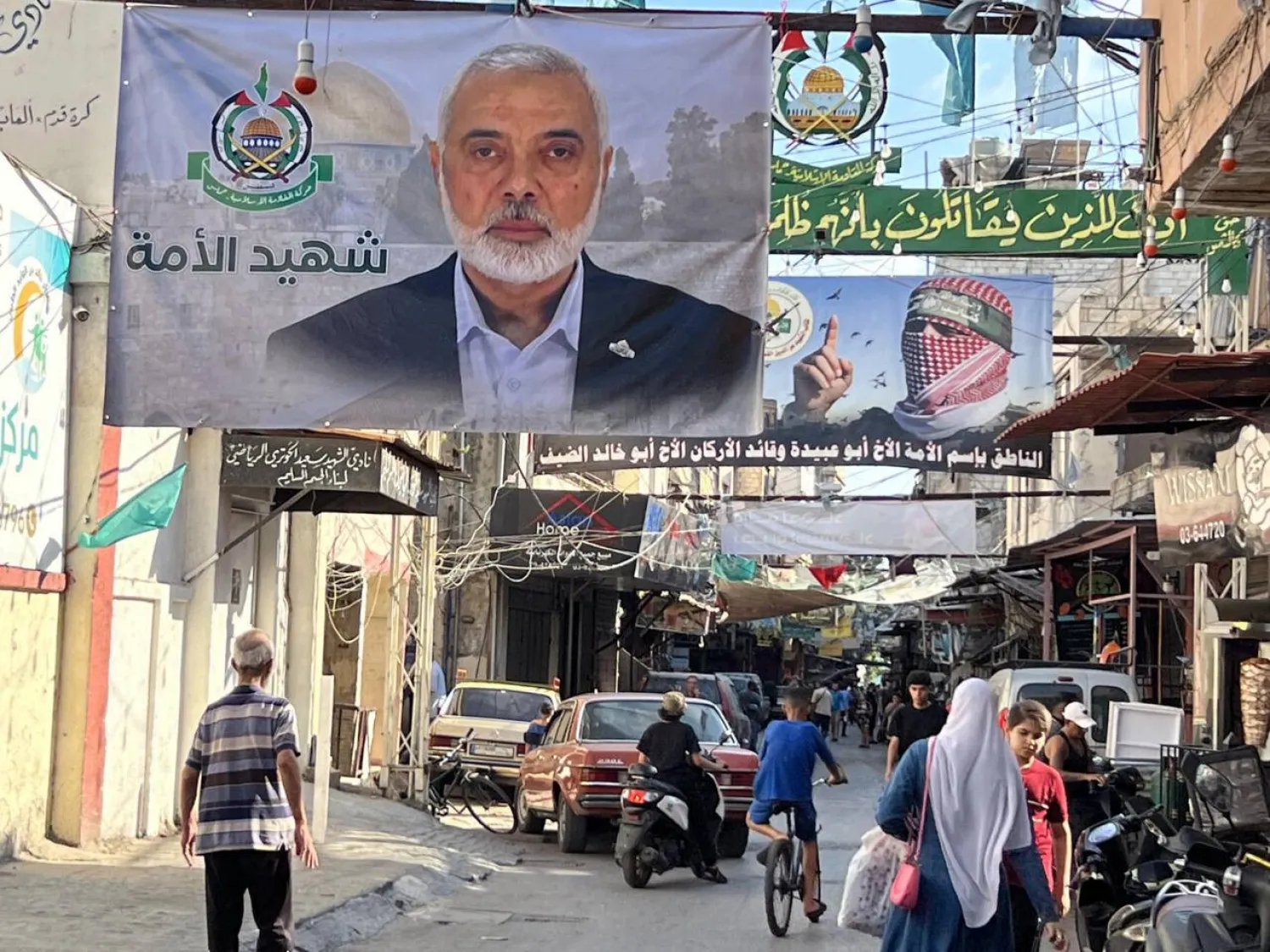Qatar is to hold on Friday funeral ceremonies for Hamas leader Ismail Haniyeh after his killing in an attack blamed on Israel that has deepened fears of a regional escalation.
Haniyeh, the Palestinian armed group's political chief, had resided in Doha along with other members of the Hamas political office, AFP reported.
He will be buried at a cemetery in Lusail, north of the Qatari capital, following funeral prayers at the Imam Muhammad bin Abdul Wahhab mosque.
Hamas has said "Arab and Islamic leaders" as well representatives of other Palestinian factions and members of the public would attend the events.
Haniyeh and a bodyguard were killed in the pre-dawn attack on their accommodation in Tehran early Wednesday, Iran's Revolutionary Guards said.
He had traveled to Iran to attend Tuesday's swearing-in of President Masoud Pezeshkian.
Israel, accused by Hamas, Iran and others of the attack, has not directly commented on it.
The Hamas leader's assassination came just hours after Israel struck a southern suburb of Beirut, killing Fuad Shukr, the military commander of Hamas-allied Lebanese militant group Hezbollah.
The killings are the latest of several incidents that have inflamed regional tensions during the Gaza war which has drawn in Iran-backed militant groups in Syria, Lebanon, Iraq and Yemen.
A public funeral ceremony for Haniyeh was held in Tehran on Thursday with crowds of mourners paying their respects.
Iran's supreme leader Ali Khamenei led prayers for Haniyeh having earlier threatened "harsh punishment" for his killing.
'Rage'
Türkiye and Pakistan announced a day of mourning on Friday in honor of Haniyeh, while Hamas has called for a "day of furious rage" to coincide with the burial.
The Palestinian group encouraged "roaring anger marches... from every mosque" following Friday prayers to protest Haniyeh's killing as well as the ongoing war in the Gaza Strip.
Israeli Prime Minister Benjamin Netanyahu has vowed to destroy Hamas in retaliation for its October 7 attack on Israel that ignited the war in Gaza.
That attack resulted in the deaths of 1,197 people, mostly civilians, according to an AFP tally based on official Israeli figures.
Hamas also seized 251 hostages, 111 of whom are still held captive in Gaza, including 39 the military says are dead.
Israel's retaliatory campaign against Hamas has killed at least 39,480 people in Gaza, according to the Hamas-run territory's health ministry, which does not give details of civilian and militant deaths.
- 'High price' -
Haniyeh's coffin arrived in Doha on Thursday afternoon, Qatar-based network Al Jazeera reported, broadcasting images of a convoy including in internal security force vehicles traveling down Doha's corniche road.
Qatar has hosted Hamas's political bureau with the blessing of the United States since 2012 following the Palestinian group's closure of its office in Damascus.
Haniyeh had played a key role in talks for a potential truce in Gaza, liaising with mediators Qatar, which has led months of behind-the-scenes negotiations alongside Egypt and the US.
Reacting to Haniyeh's death, Qatar's prime minister said the killing had thrown the Gaza war mediation process into doubt.
"How can mediation succeed when one party assassinates the negotiator on the other side?" Sheikh Mohammed bin Abdulrahman Al Thani said on social media site X.
The international community called for calm and a focus on securing a ceasefire in Gaza -- which Haniyeh had accused Israel of obstructing.
Israel warned its adversaries on Thursday they would "pay a very high price" for any "aggression".
"Israel is at a very high level of preparation for any scenario, both defensive and offensive," Netanyahu said in a statement.
"Those who attack us, we will attack in return."
Slain Hamas Chief Haniyeh to Be Buried in Qatar

A banner bearing the picture of slain Hamas leader Ismail Haniyeh in the Palestinian refugee camp of Ain al-Hilweh in Lebanon. Mahmoud ZAYYAT / AFP

Slain Hamas Chief Haniyeh to Be Buried in Qatar

A banner bearing the picture of slain Hamas leader Ismail Haniyeh in the Palestinian refugee camp of Ain al-Hilweh in Lebanon. Mahmoud ZAYYAT / AFP
لم تشترك بعد
انشئ حساباً خاصاً بك لتحصل على أخبار مخصصة لك ولتتمتع بخاصية حفظ المقالات وتتلقى نشراتنا البريدية المتنوعة







